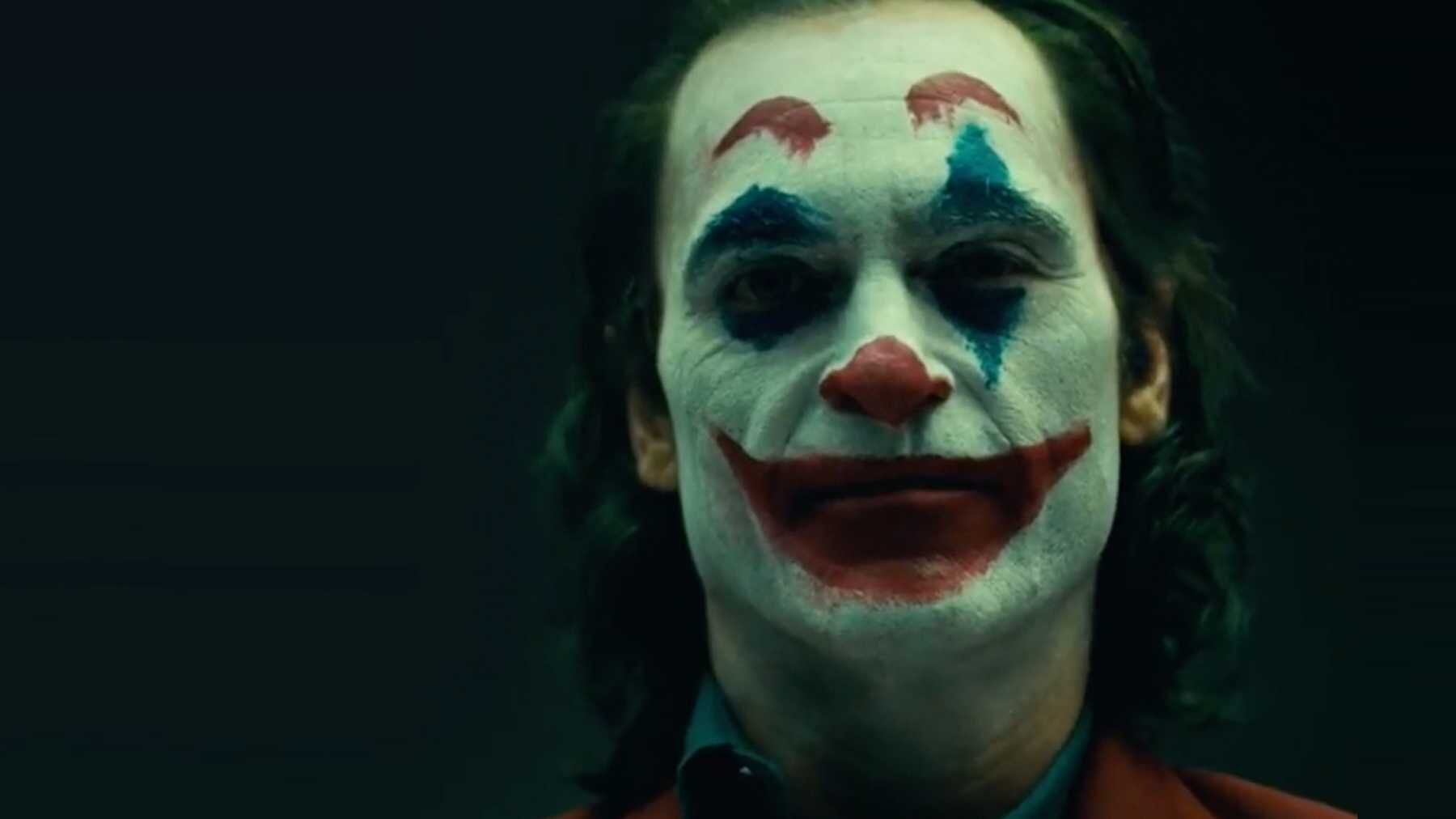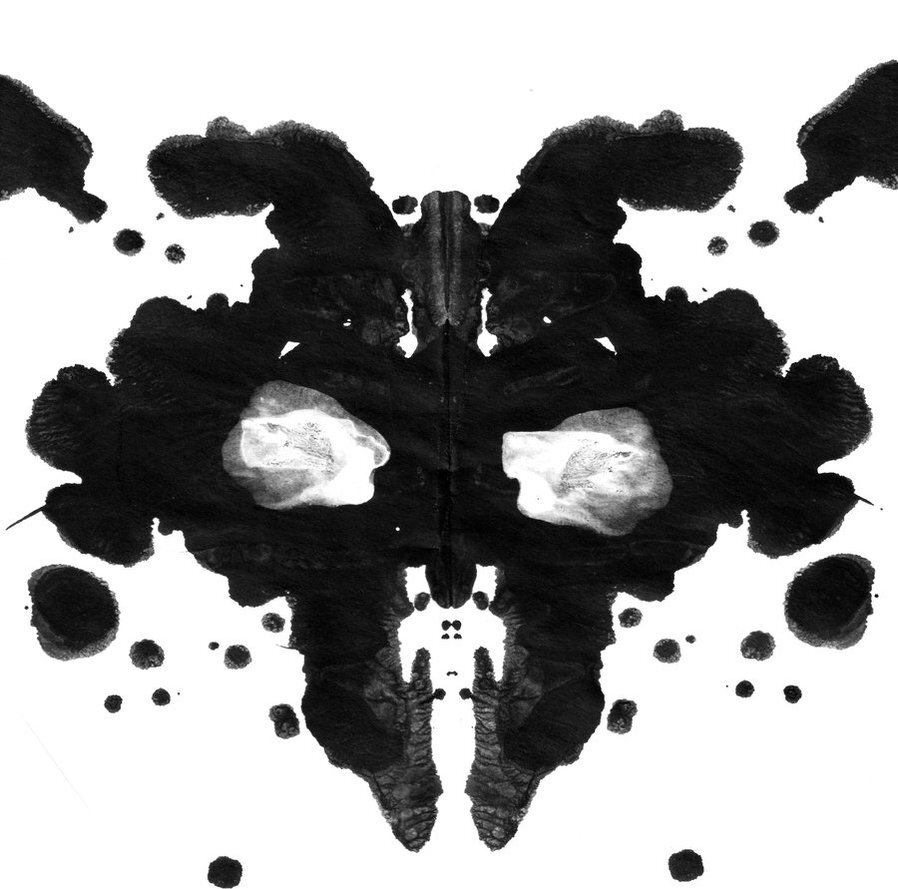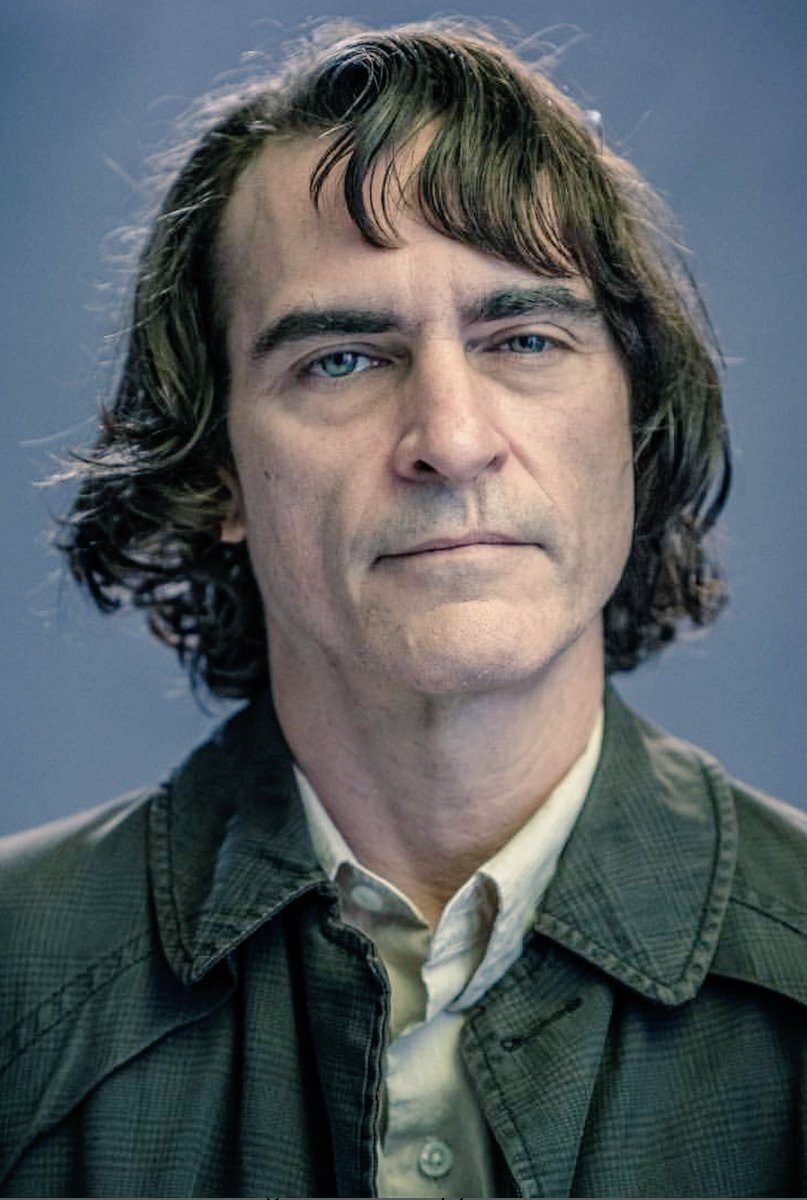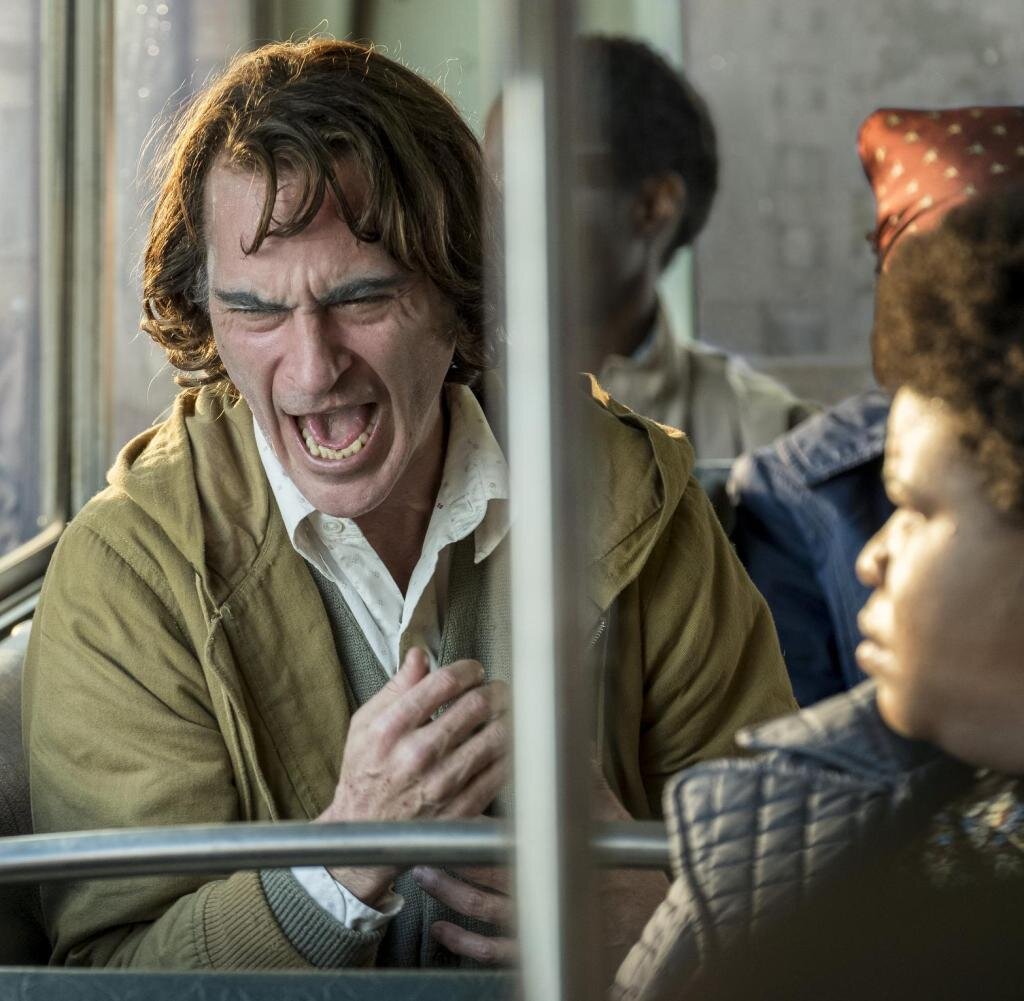LONG FORM: Joker
The Joker is the cinematic equivalent of a Rorschach test…
*WARNING: Spoilers ahead*
In the recent true crime documentary, ’The Devil You Know’, a five-part online Viceland series, we are introduced to the convicted murderer and self-proclaimed satanist Pazuzu Algarad. The main story of a sociopath sucking lost, bored souls into his chaotic orbit is unnerving and highly uncomfortable. Even more unsettling is the subtext of a casual indifference displayed by the local governance towards a broader community already simmering in a post-GFC hopelessness.
In many aspects, TDYK and Joker are aiming to deliver the same message. Whereas TDYK documents a real-life incident to make a thought-provoking statement, Joker is drawing upon a variety of current-day talking points to create a fictional warning that, once again, Rome is burning. But Joker is not interested in anchoring you with a definitive statement. Instead, it chooses a highly ambiguous route, an almost buffet of dystopian motifs from which the viewer can cherry-pick.
RORSCHACH TEST: It’s obviously a picture of climate change. But what do you see?
Choose your own motif
Is it about mental health? Is it about the widening class divide? Is it about celebrity worship? Is it about political correctness? Is it about a decaying society? Is it just a hodgepodge of issues stitched together to make a supervillain origin movie? Is it meant to be about anything at all? Its insistence on being ambiguous means everyone will take something different away from their viewing. What life experience you bring into this movie will colour what you get out of it. The Joker is legit the cinematic version of a Rorschach test.
Maybe Joker is an exploration of a sad loner with declining mental health aching for connection? It’s a real dark starting point, but then again so is Gotham City and the society which shaped Arthur Fleck AKA Joker. Mental illness seems to be at almost epidemic levels; empathy and compassion are dying a slow death; society is gradually drowning in a pool of uncaring bureaucracy, and the class divide is becoming more fascist-like.
On top of that, he suffers from a Tourettes-like affliction which forces uncontrollable laughter at the most inappropriate moments. What a set-up: A man who knows only insufferable loneliness and mental pain are prone to bouts of uncontrollable laughter. The universe is telling a joke Fleck is definitely not in on.
JOAQUIN PHOENIX: There is a method acting to his madness…
Joaquin Phoenix delivers a TKO
This pessimistic take on modern-day society is not a new idea and has been explored in many other movies: Fight Club, Seven, Taxi Driver comes to mind. Hell, even the original Ghostbusters raised a red flag about a growing societal apathy. Point is, this theme has been explored before so we need more than just an edgelord’s love letter to cynicism. Thankfully, the movie’s cholesterol-clogged beating heart is a tremendous acting effort from Joaquin Phoenix.
The actor throws himself into Fleck with a frightening degree of realism. And if you can’t give him empathy, his exploration of a troubled soul will demand, at the very least, your sympathy. Fleck’s troubled psyche is projected in the actor's appearance, and Phoenix crafts the slow mental decline of a man at the end of his line in an almost grotesque fashion. He is malnourished, bones protruding from every corner of his body. His frame is so weighed down by problems his shoulders seem calcified into a constant state of hunched defeat.
He leads you into Fleck's lonesome black hole like a demented captain on a sinking ship. The movie’s first act can easily lay claim to being one of the most harrowing cinematic experiences ever screened in a mainstream theatre.
Please Stop being an Incel ok?
BEWARE THE INCELS: And definitely don’t give them empathy…
Fleck has no close friends and is physically and emotionally weak. He has no girlfriend, a middle-aged man who still lives with his mother and is a joke to his colleagues (which is saying something if you’re in the clown business). This is a character weighed down by his internal mental decline as much as he is a victim of society's expectation of what it means to be a cis-gendered male.
That possible commentary has led to the movie being labelled dangerous, a dog whistle of sorts to weaponise Incels into action. Because, you know, a loner male struggling with mental illness is obviously an incel. But this shows a lack of understanding which is more poignant the deeper we go.
The character of Fleck is also a victim of parental abuse and neglect. His drive to be a ‘normal' part of society has been replaced by whatever he needs to do to numb the pain of an upbringing he didn’t ask for. As Arthur Fleck ruminates so eloquently in the movie: ’The worst part of having a mental illness is people expect you to behave as if you don’t.’ Think about it…
Living up to societal standards is a much harder proposition when all your emotional bandwidth is taken up trying to deal with trauma or mental illness.
The fact that he is a victim of abuse is revealed very clearly as the root of his disorder. Yet, the message the Twitter-sphere critics took from it was not that we should do more to stop child abuse and tend better to those with mental health issues. No, their takeaway is that the movie is a siren call for Incels. That allegation displays a worrying lack of empathy, which, in a very kung-fu meta move, is precisely one of the issues Joker is trying to highlight.
Not only is Fleck systematically dismantled by a society drained of empathy and compassion, but his mental health issues are medicated away by a bureaucratic system designed to anaesthetise rather than heal. The more salient points Joker is making is how we collectively approach and deal with mental health - and the alarming decline of empathy in modern society.
Hey, sometimes we all hide behind a mask…
Show us your empathy
The current healthcare system seem very disinterested in mending the root cause of mental health. Instead, it favours capturing patients in an endless cycle of enervating prescription drugs. Running parallel to that, slacktivists, through a sanctimonious display of virtue signalling, conveniently pass over the root causes moulding cultural issues like Incels. Just as the healthcare is geared towards taking financial advantage of the mentally ill, so the slacktivists harvest the oh-so-very real problems of humans for online back pats and ‘likes’. The irony is fucking foul: There really is nothing to ‘like’.
But ideological faux-outrage shouted into self-absorbed echo chambers from behind the digital safety net of a privileged and uncomplicated upbringing is super cool and trendy. And it is just one more way in which this current society will strangle those with mental, spiritual and emotional afflictions even more.
There are deeply embedded societal and cultural structures affecting everyone. Instead of just pointing fingers, the enraged critics could re-focus their energies into canvassing solutions. Or at the very least, they would be way more helpful in soothing the cultural inflammation by applying a liberal dose of sympathy. Unfortunately, it is easier to look proactive just by pointing out problems than it is to look for solutions.
Indeed, we live in a society…
CHARLIE CHAPLIN: Just another cog in the machine…
WE LIVE IN Modern Times
The widening class divide is another dish in the dystopian motifs buffet. The characters of Robert De Niro and Bret Cullen are both embodiments of the one percent who sees the rest of the population as cogs to be oiled for their individual machines. References to Charlie Chaplin’s ‘Modern Times’, a classic 1930’s silent movie about creeping dystopia which we highly recommend watching, are littered throughout the film. Unfortunately, with all this moral grandstanding it does edge towards feeling a tad contrived…
Remember how the Gillete ad capitalised on a social justice movement with a message that was undoubtedly in direct contrast to their track record? It kinda feels like the movie is following suit by cashing in on a rich vein of discontent and dissatisfaction currently permeating Western culture. This movie is society-is-crumbling porn for those who feel like, well… society is crumbling. Ironically, this contrivance might be the movie’s only unambiguous point. ¯\_(ツ)_/¯
The Joker’s ON you
TODD PHILLIPS: He has a PC culture hangover…
The writer/director behind Joker is Todd Phillips, the man behind major Hollywood comedies like the Hangover trilogy, Old School and Starsky & Hutch. In those movies, he focuses on chaos that extracts cheap laughs from frat-boy humour. In Joker, he shifts gears to focus on uncomfortably realistic chaos. Compared to his other projects his latest might seem out of place, but his first feature, the early nineties documentary on the coprophagic, self-mutilating punk nihilist GG. Allin showed his interest in exploring humanity’s dark recesses.
Arthur Fleck proclaims he thought ‘life was a tragedy’, but now realise its ‘actually a comedy’. After directing a spate of Hollywood knee-slap features, Phillips arrived at a place where his life outlook was a comedy for years but now is a tragedy. The catalyst? It could be his recent lamenting of political correctness, another thread running through the movie: a clown whose jokes are not funny anymore. The very final scene shows Fleck in custody at Arkham Asylum, laughing to himself. When the doctor asks if he would like to share the joke, he simply responds, "You wouldn't get it’. A bit edgy, isn’t it?
Revel in the joke of life…
The eye of the beholder
In a recent Reel Blend interview with Todd Phillips, the interviewer asked about two different scenes featuring clocks in the background which displayed the time of 11:11 (there are actually three scenes with clocks featuring 11:11). Upon enquiring as to the meaning of this Phillips replied bemused: ‘It’s a coincidence’, before confirming it was definitely not intended. For all its surface-level symbolism, and there is a lot, there seems to be an unintended superficial layer many will read too much into. But really, who cares…
The fun part so far has been hearing everyone’s wildly fluctuating verdicts. And because the movie is so hell-bent on being ambiguous, it means anyone’s interpretation is correct. Michael Moore’s synopsis interestingly distils the message into a very binary, bi-partisan take on left vs right American politics. It’s a thought-provoking take which completely reframes the movie. It is so caked in layers of ambiguity, even its intent is not immune. Or maybe it intends to be ambiguous?
Depending on which side of the Rorschach test you stand on, the movie’s bleak cynicism might be too much. Yet, Joker has sparked so much debate on issues we all need to be talking about, and for that reason alone, this is an important film. And at the end of the day, and whether Todd Phillips is an auteur, an edgelord, provocateur or a director who accidentally tapped into the zeitgeist of 2019, good art is supposed to evoke a strong emotion. Joker certainly does just that. And for that reason alone, I'm thankful it exists.








